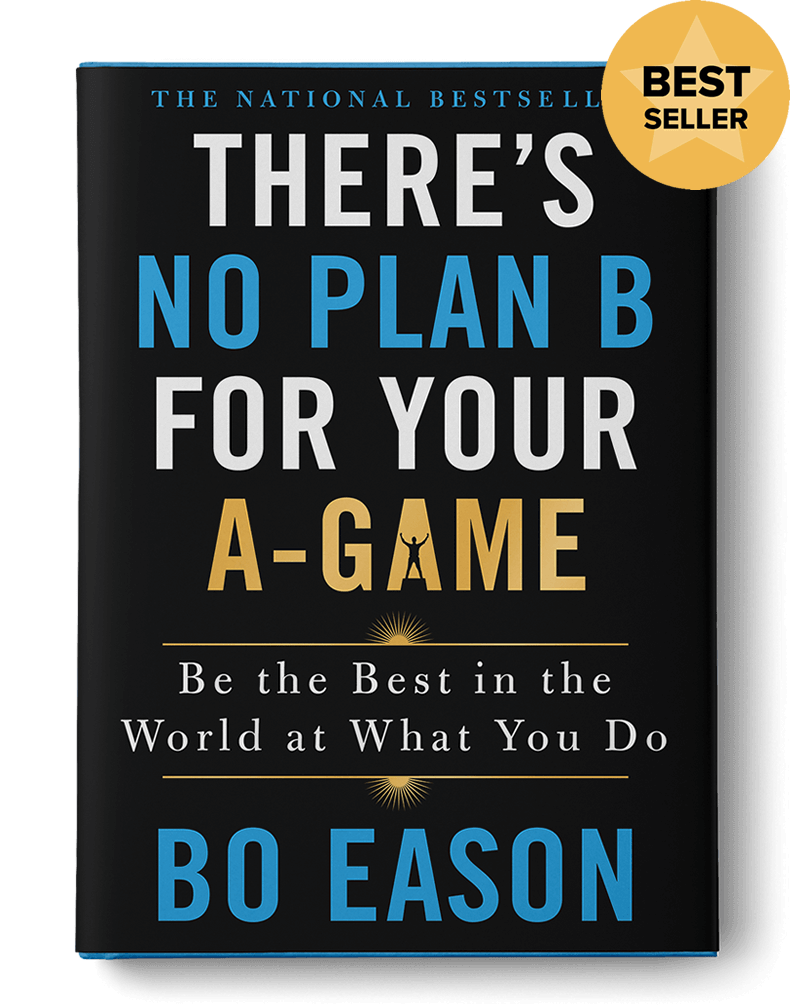Bo: Alright, we’re back with Dr. Joan Rosenberg. Let’s work something out, just because you know me well enough, and YOU know me well enough, that I’ve just been obsessed or haunted by this term to “be the best” at what I do. Regardless of the discipline or field, I believe that’s what we’re all put here on this Earth to do. And I always tell people, “Look, if you desire that, if you feel instinctually that that’s what you’re here to do also then the number one thing you’ve got to do is master your story.” If you master the ability to express yourself so that you can make your way there and people can follow you and help you and help build this thing. Am I right about that? Am I wrong? I feel it in my gut, but I don’t know if it makes any sense.
Joan: It makes a lot of sense to me. So again we’ll engage in the conversation of ‘what does the best?’ have to do with storytelling. So the way I like to think of it Bo is that if I am shut down on my story—I’ve never talked about my life. I hide really important experiences that I’ve gone through. I’ve not dealt with them. And, again, it’s one thing to say the story but I can say the story and have no emotion attached to it.
Bo: Yeah. Got it.
Joan: That’s not a story that’s been dealt with.
Bo: Right.
Joan: So to deal with your story it’s not only telling the story, it’s also putting the emotion to it so that you’re talking about how you felt in the experience. And then in the best of circumstances, you’re making sense of the experience. So think of three things: telling, telling with feeling and making sense of what all that was.
But if I’m hiding all that stuff, basically all my energy, all my creative energy, all the energy I can put into the pursuit, all that energy is being tied up in keeping the story well contained. So I don’t have the freedom to pursue stuff with the same level of creativity, the same level of understanding, any of that, because all of my creative energy is clamping down on the stories. As soon as I start to tell the story, and again, make sense of the story, then all this energy that’s holding it back is freed up. Now I can use all of this for creativity. I can use all this and the energy of the pursuit of being the best. I can use it in the energy of being disciplined or whatever it might be.
Bo: Yeah. You become fearless once you’re the one telling the story. If that story is telling you and you’re having to hold it down for fear that it’s going to expose you in some sort of way then all your energy is going into containing. I don’t want to contain this thing.
Joan: Right. You want to let it free. You want to let it roam.
Bo: And that, I guess we’d call that a generous spirit, right?
Joan: Absolutely. You were talking about how standing behind the stage, in your own mind, you were going to give the best performance when you were doing your play. But that’s generosity. It’s giving it all you got. So, for me, some element of generosity is tied to being the best. Both are really important to you.
Bo: No doubt. That’s so good. Thanks for that. I train this and I talk to people about it and I implore this of them, without really having any like, “What am I actually trying to do with these people?” I kind of know this to be true but why is it true? And it makes so much sense. I often have this theory about being the best in your field too, that it’s those who are the most creative also. So if all that creativity is containing something, it can’t be ….
Joan: It can’t be used for the creative pursuit. It’s only being used to contain old stories—old painful stories.
Bo: And, look, as human beings, we’re not in the business of containment, are we? I mean, we don’t like that. We’re in the business of freedom and expression. Not, let me contain this so no one sees it, which is often when I give people the assignment of tell me that one story that you don’t want to tell. Tell me that one. Because I’ve got a feeling that your goal lies in that one.
Joan: Absolutely true. Yes.
Bo: That’s cool. I just think there’s no other work to be doing, other than this kind of work so that you can really run free. We have leaders that are healthy and running free and that people can follow, that you can follow—that can lead you at the same time.
Joan: And you become a much better leader. So when you’ve taken the lid off, so to speak, and you can use all that energy for creativity and the pursuit of you being the best, there’s no stopping you.
Bo: Thanks, Joan.
Joan: You’re welcome.

